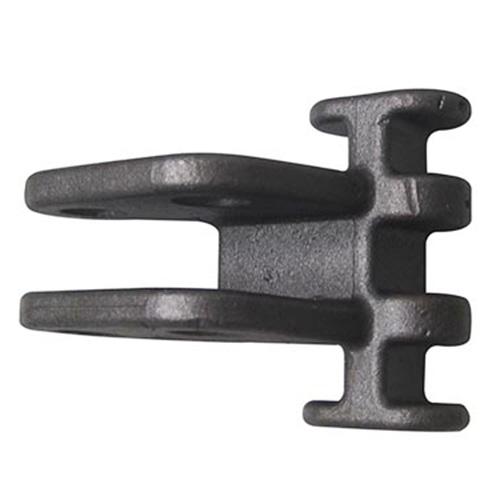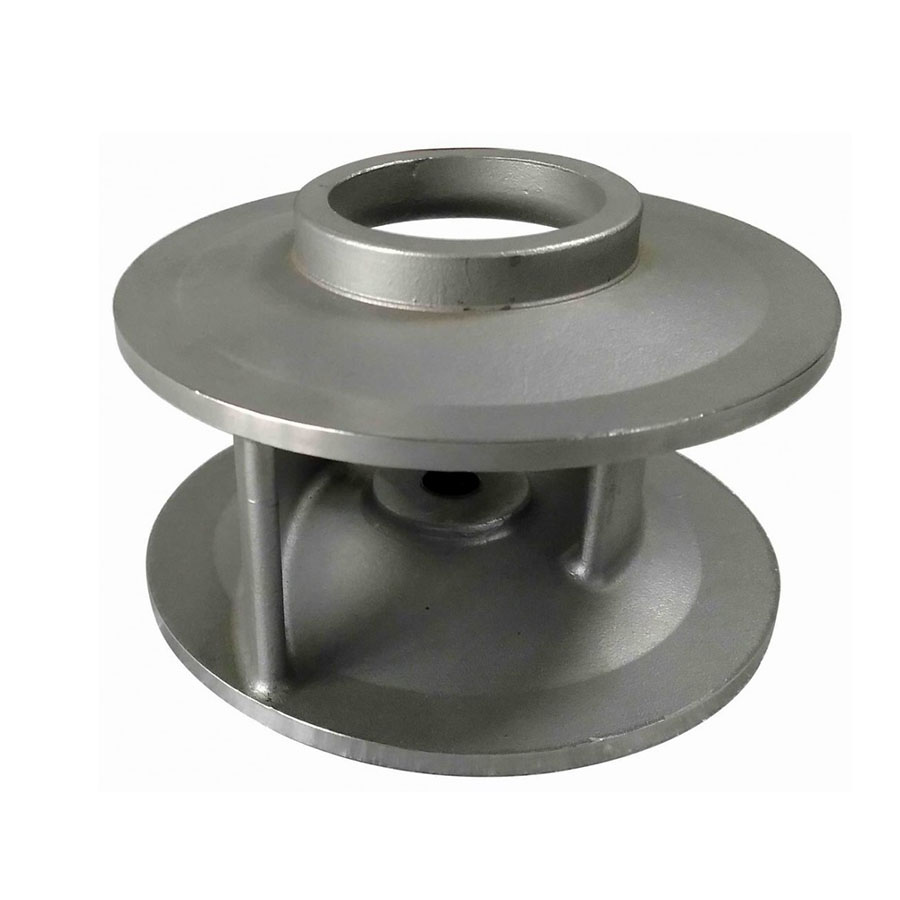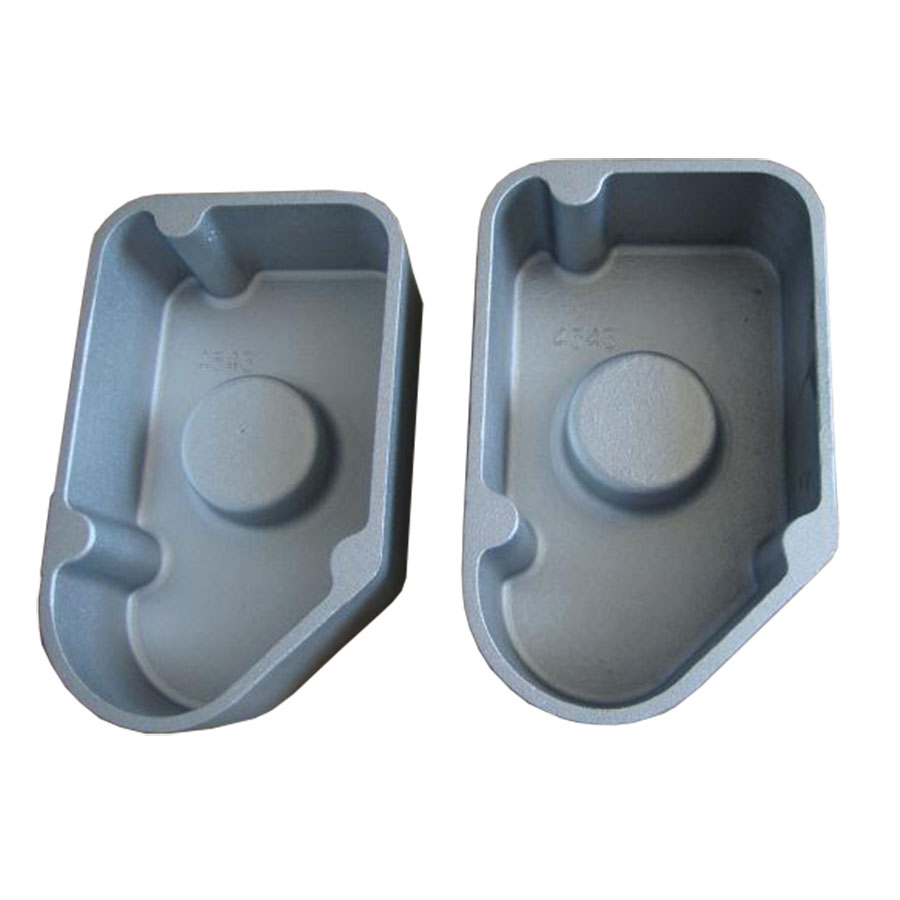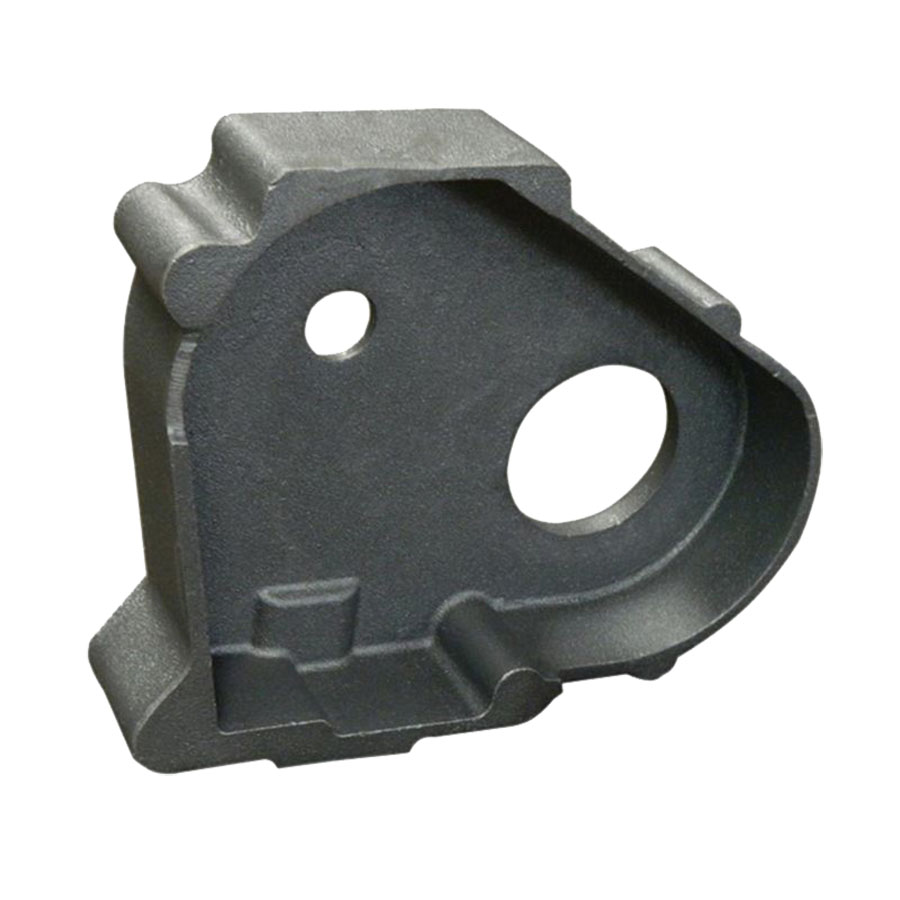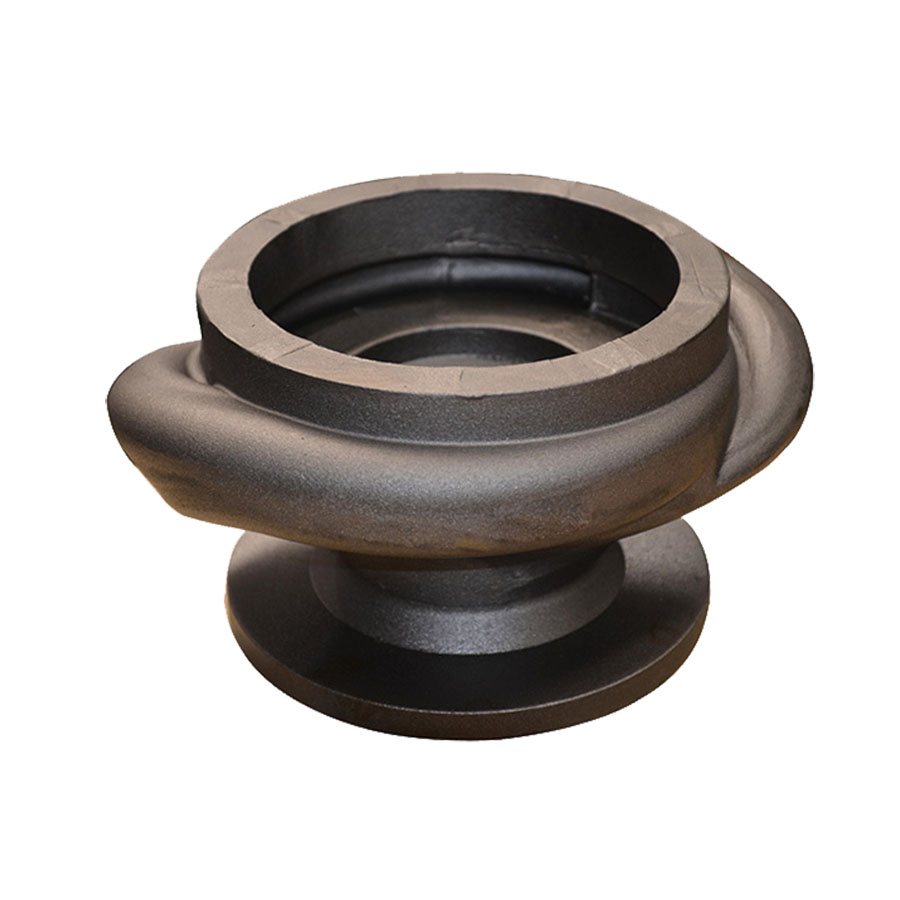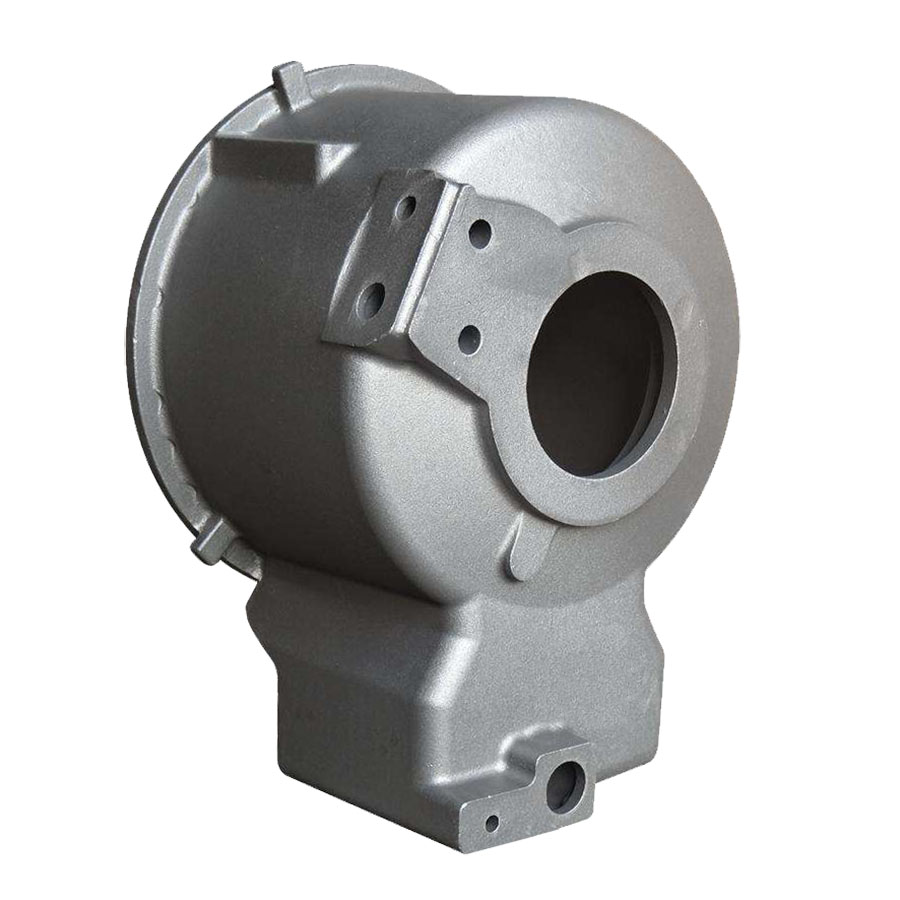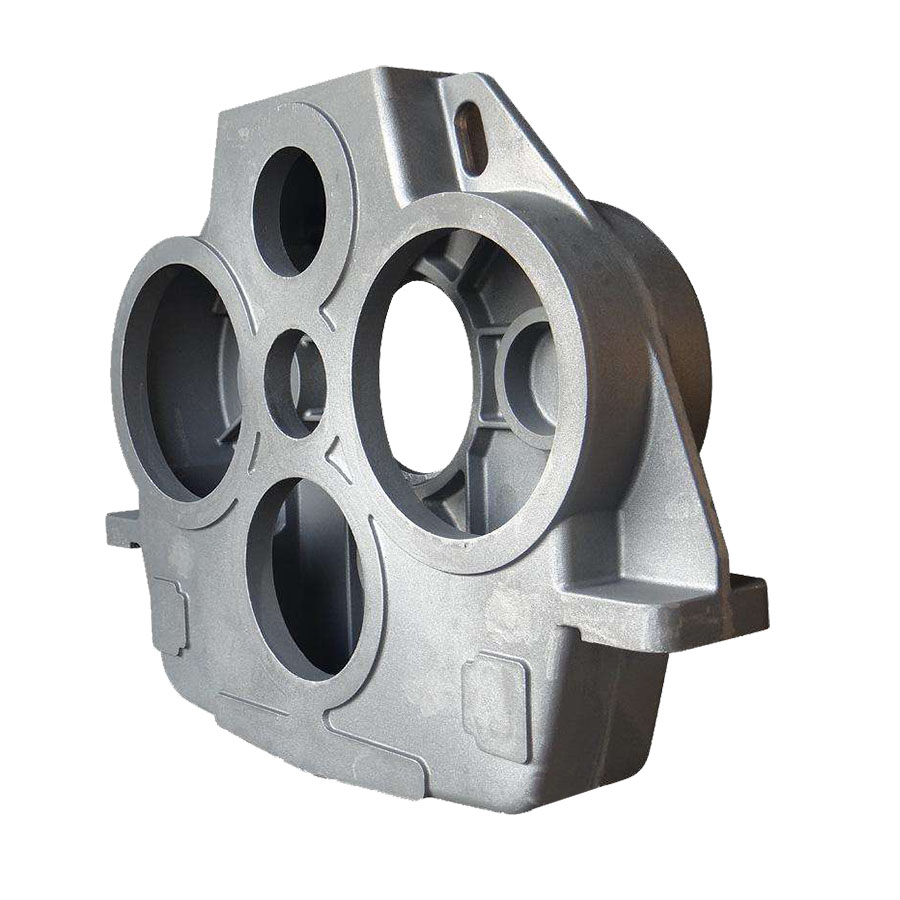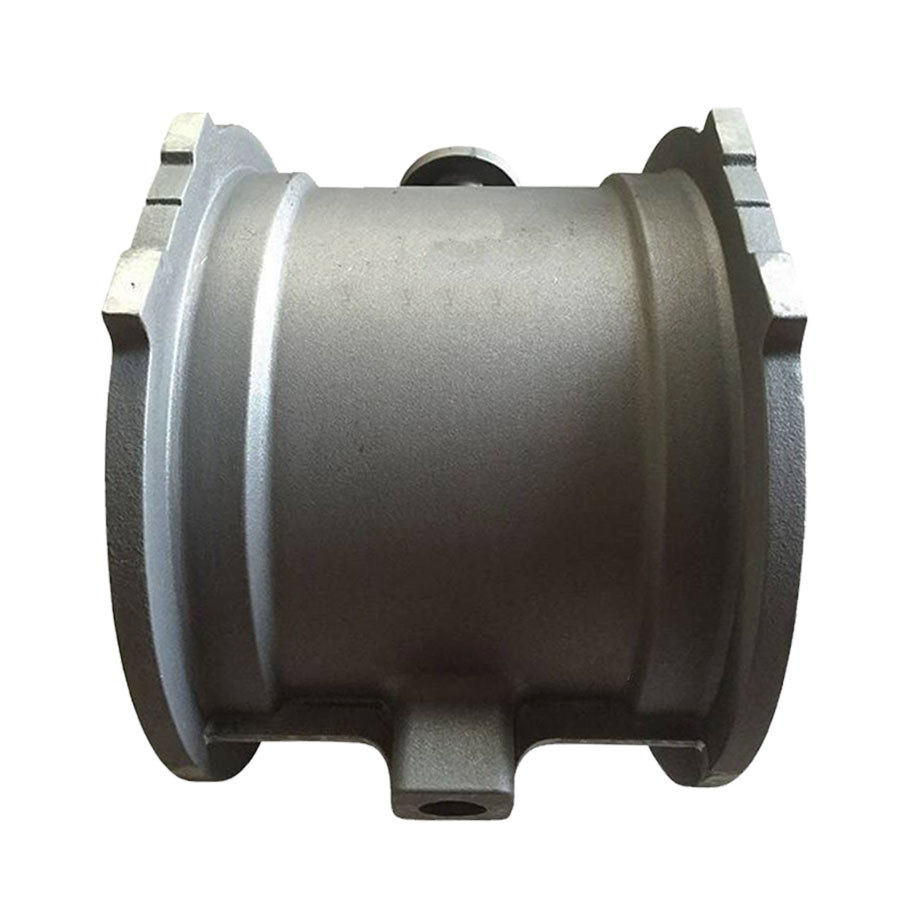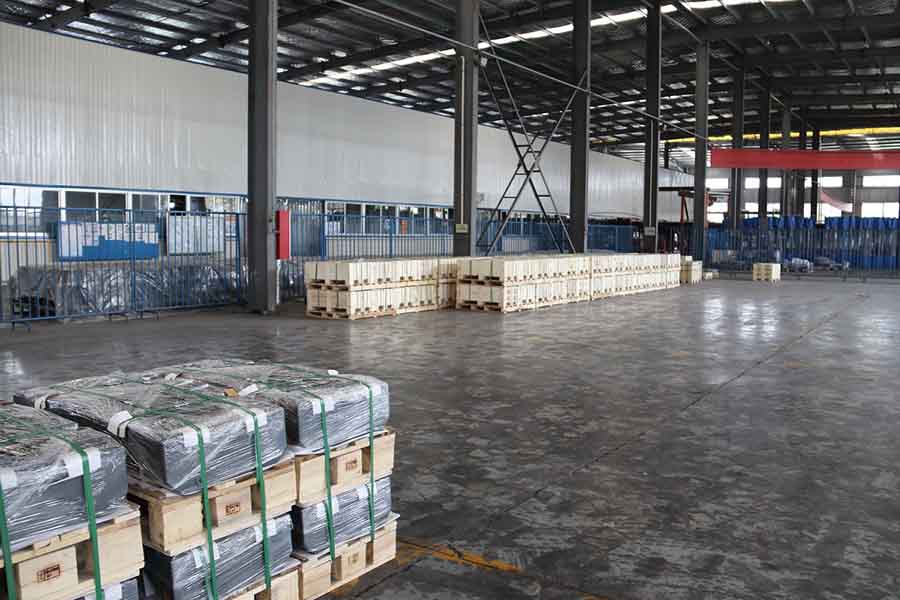Resin Pre-coated Shell Mould Casting Foundry
Shell molding casting process is also called pre-coated resin sand casting process, hot shell molding castings or core casting process. The main molding material is the pre-coated phenolic resin sand, which is more expensive than green sand and furan resin sand. When the pre-coated sand is heated by the hot patterns, the sand will become strong shell to form the mold cavity, which will withstand the molten metal and alloys.
The pre-coated sand can not be recycle used. The shell molding castings have higher costs than sand casting. However, the shell molding casting parts have many advantages such as tighter dimensional tolerance, good surface quality and less casting defects.
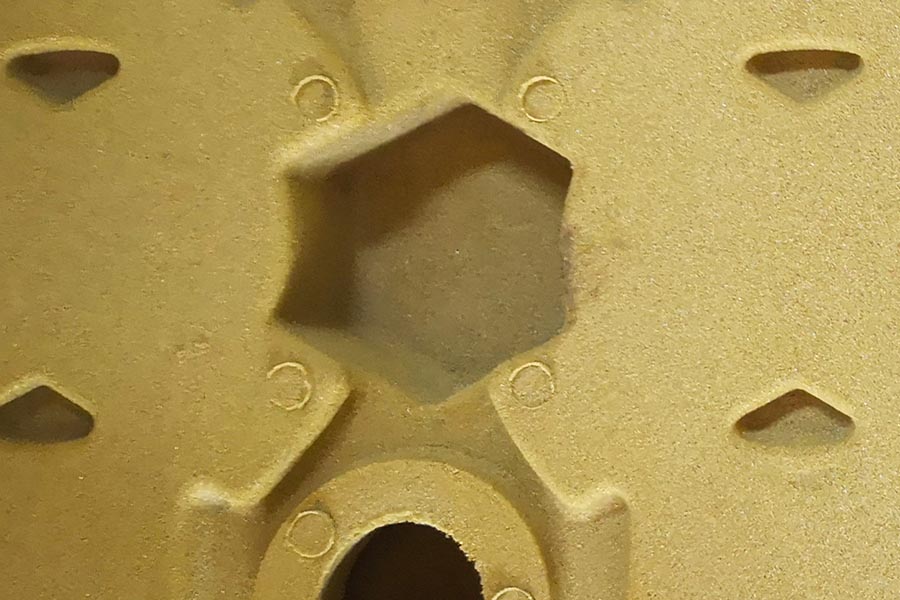
Capacities and Molten Metal for Shell Mold Castings
- Gray Cast Iron: EN-GJL-100, EN-GJL-150, EN-GJL-200, EN-GJL-250, EN-GJL-300, EN-GJL-350
- Ducitle (Nodular, Spheroidal Graphite) Iron: EN-GJS-400-18, EN-GJS-40-15, EN-GJS-450-10, EN-GJS-500-7, EN-GJS-600-3, EN-GJS-700-2, EN-GJS-800-2
- Cast Aluminium and Their Alloys
- Cast Steel or other materials and standards on request
- Brass, Bronze and other Copper-based Alloys
▶ Capabilities of Shell Mould Casting:
- Max Size of Casting Molds: 1,500 mm × 1000 mm × 500 mm
- Weight Range of Shell Castings: 0.5 kg - 500 kg
- Annual Capacity of Shell Castings: 5,000 tons - 6,000 tons
- OEM Custom Services: Available
- Casting Tolerances: On Request.
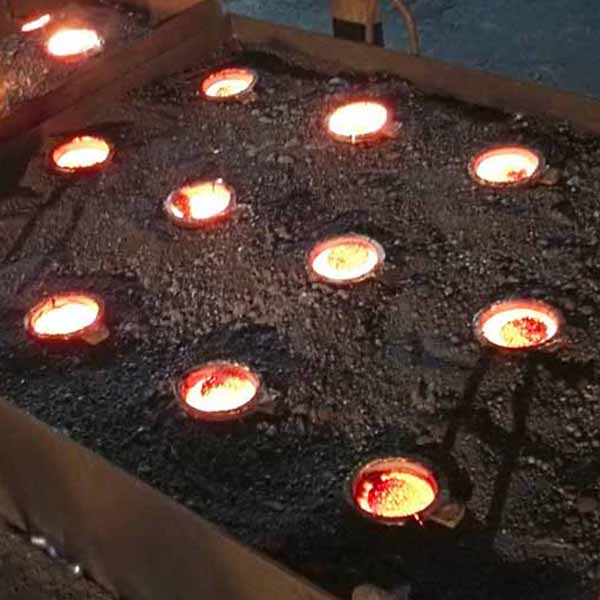
How We Inspect Shell Mould Castings
Our Spectrometer checks 15 chemical elements and metallurgical microscope produces high-resolution images 1,000 times magnified, and our cleanliness meter determines particle size and quantity to ensure materials meet or exceed the international standard. RMC use ultrasonic detectors to discover flaws, and have X-ray machines and accelerators that can scan castings with 200 mm maximum wall thickness.
RMC has a full range of inspection capabilities in house, which include:
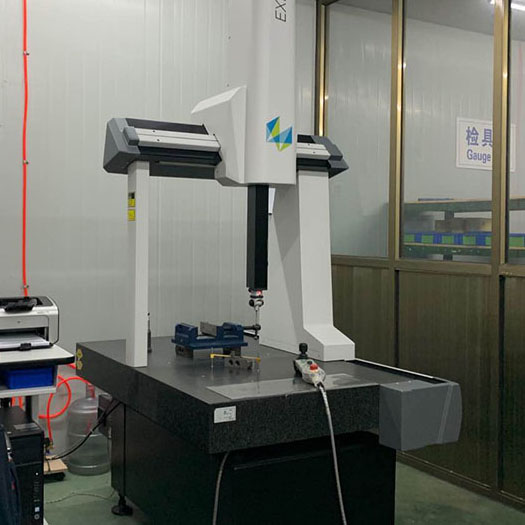
Shell Mould Casting Procedures
1- Design and Make Patterns.
The pre-coated resin sand needs to be heated in the patterns, so metal patterns are the necessary tooling to make shell molding casting
2- Make Pre-coated Sand Mold
After installing the metal patterns on the molding machine, the pre-coated resin sand will be shot into the patterns, and after heating, the resin coating will be molten, then the sand molds become solid sand shell and cores.
3- Melt the Cast Metal
Using induction furnaces, the materials would be melted into liquid, then the chemical compositions of the liquid iron should be analyzed to match the required numbers and percents.
4- Pouring Molten Metal
When the melted iron meet the requirements, then they will be poured into the shell molds. Based on different characters of the casting design, the shell molds will be buried into green sand or stacked up by layers.
5- Shot Blasting, Grinding and Cleaning
After the cooling and solidification of the castings, the risers, gates or additional iron should be cut off and removed. Then the iron castings will be cleaned by sand peening equipment or shot blasting machines. After grinding the gating head and parting lines, the finished casting parts would come, waiting for the further processes if needed.
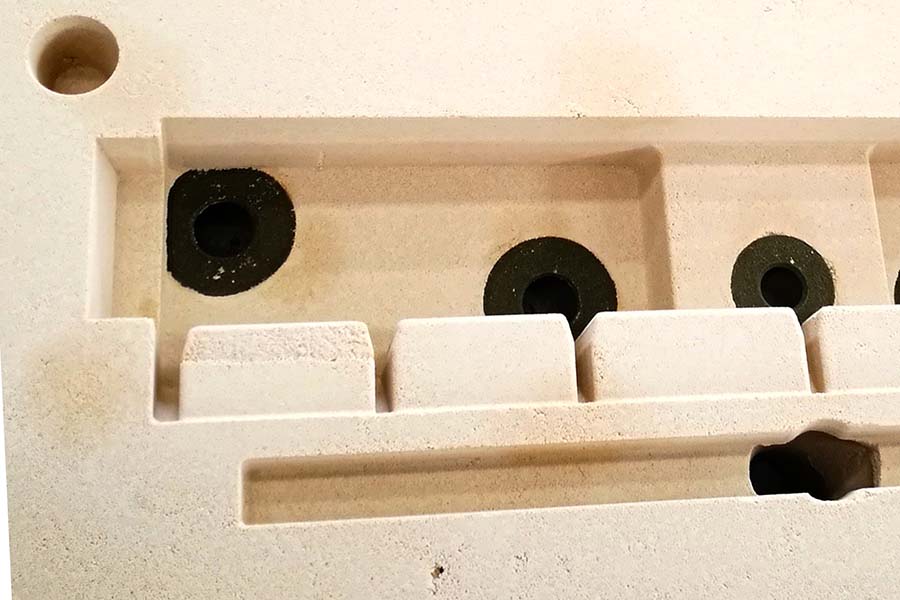
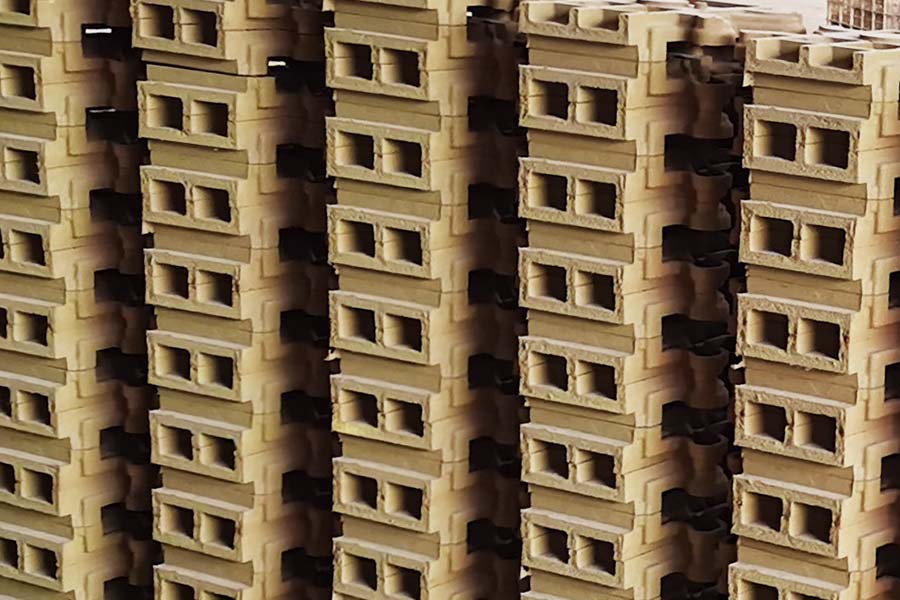
Shell Mould Casting Foundry Gallery
In RMC's foundry, we utilize the professional equipment to produce the patterns and form the casting shell mold. These highly organized equipment help us to produce the shell mold castings part of high quality and big volume. These equipment could produce diverse custom castings such as grey iron castings, ductile iron castings, carbon steel castings, alloy steel castings, stainless steel castings, aluminium castings and brass castings.
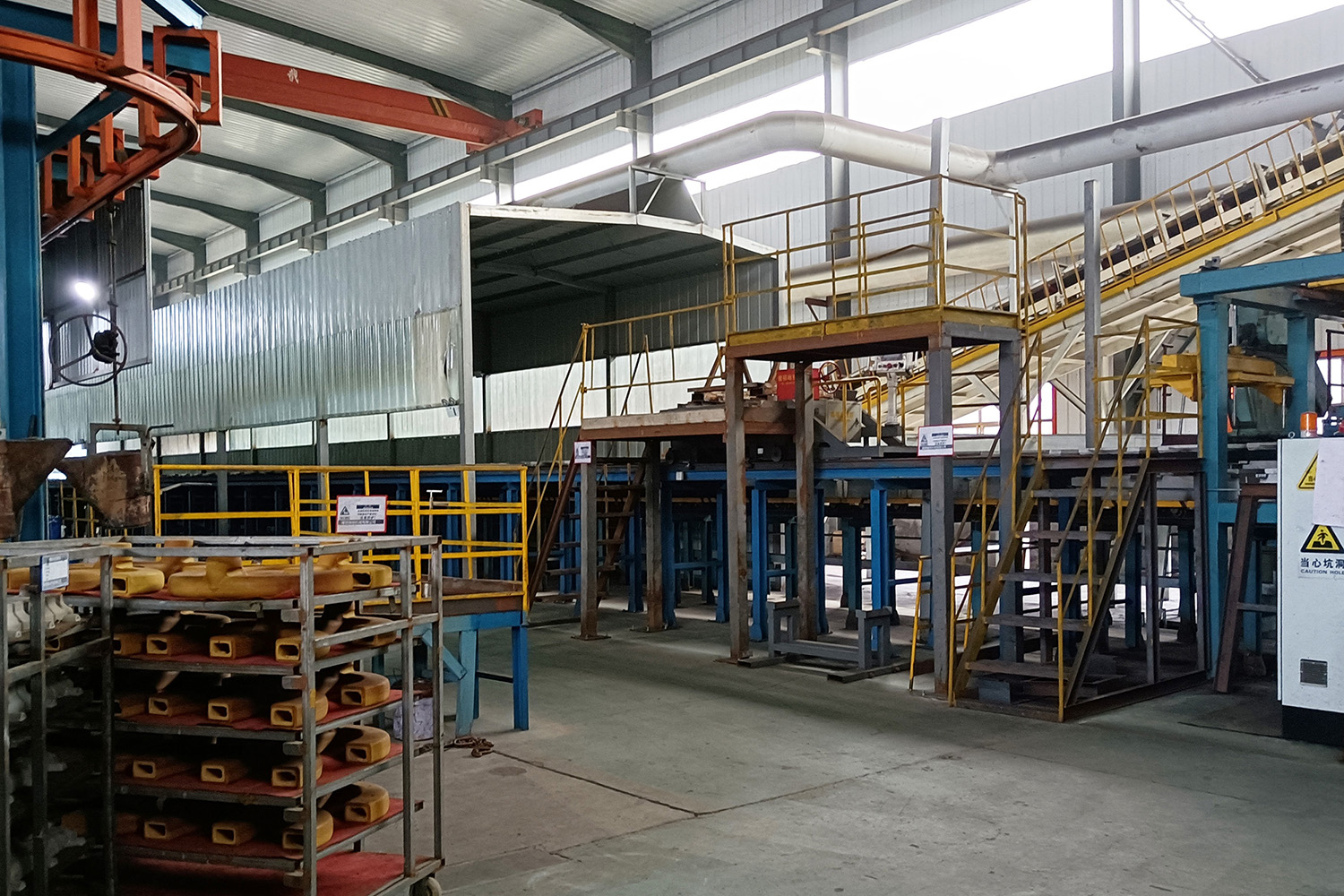
Shell Mould Casting Factory
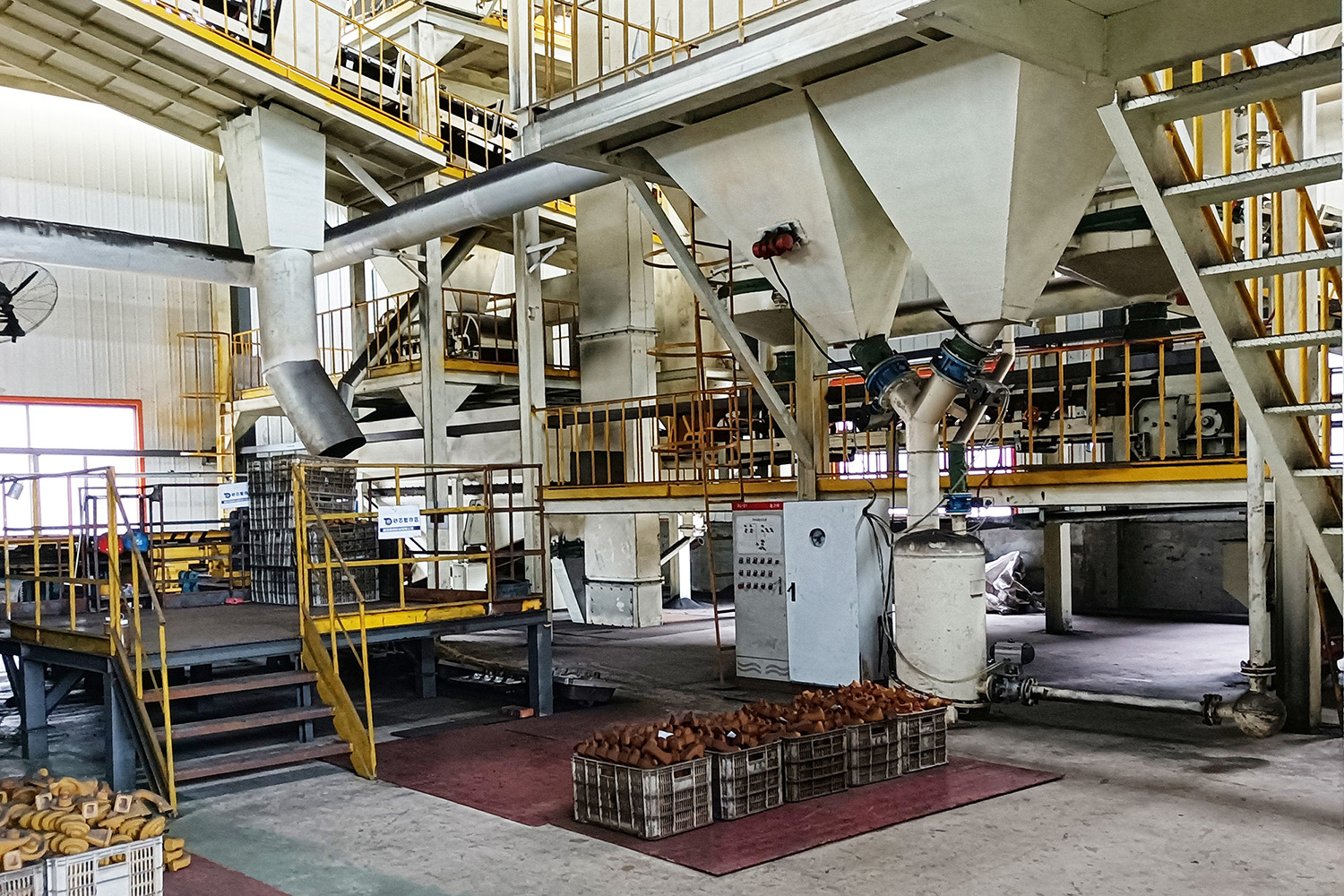
Shell Mould Foundry
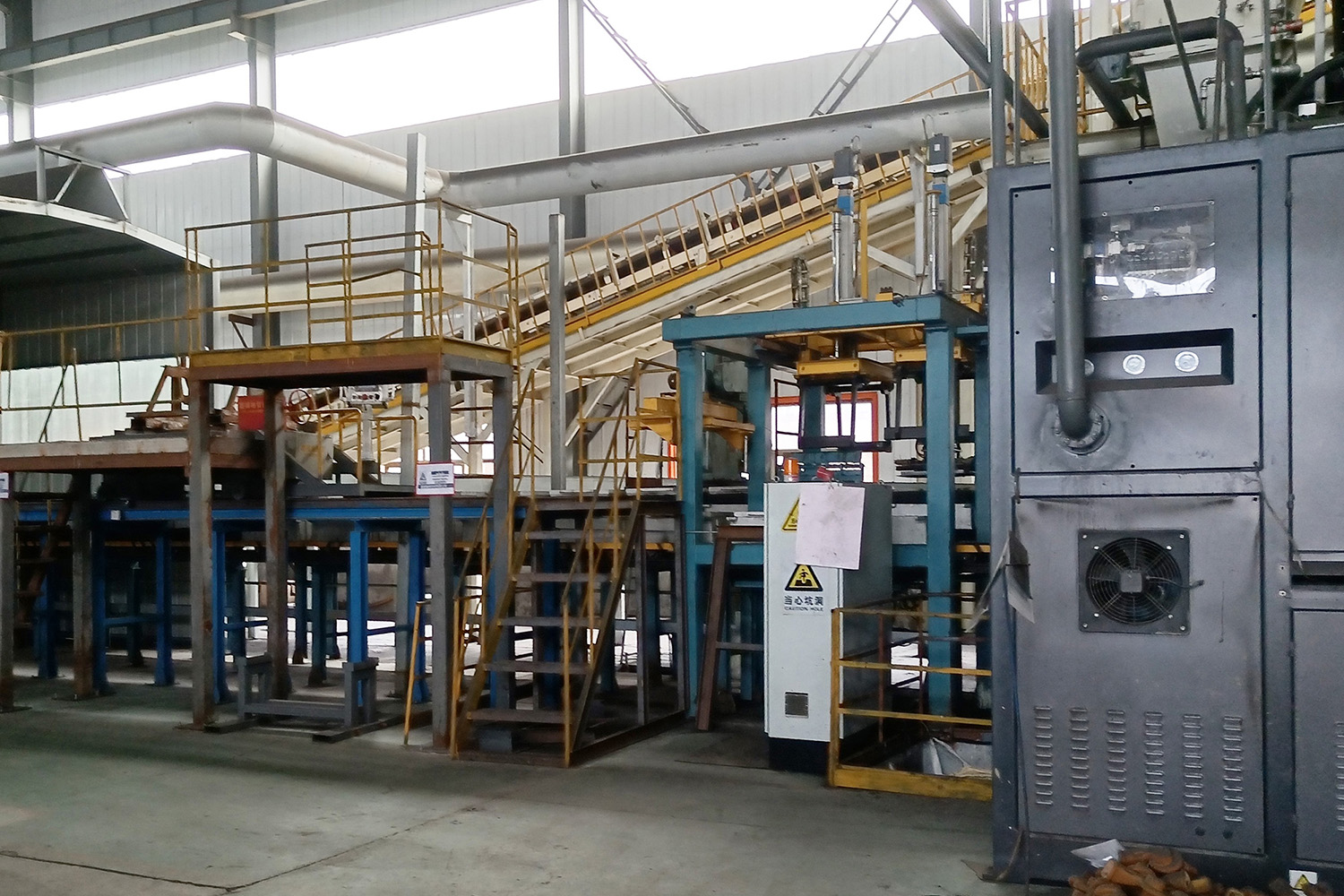
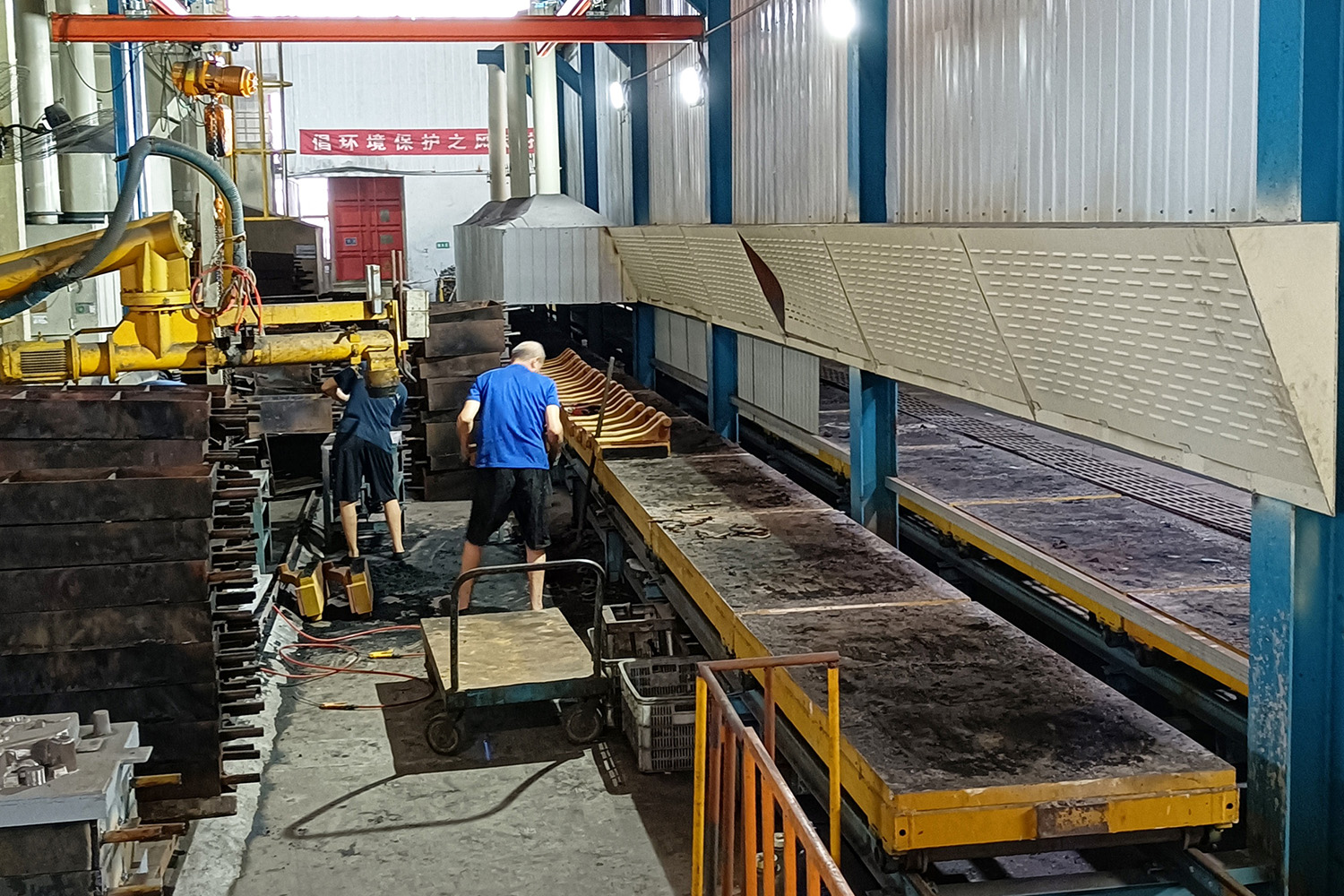
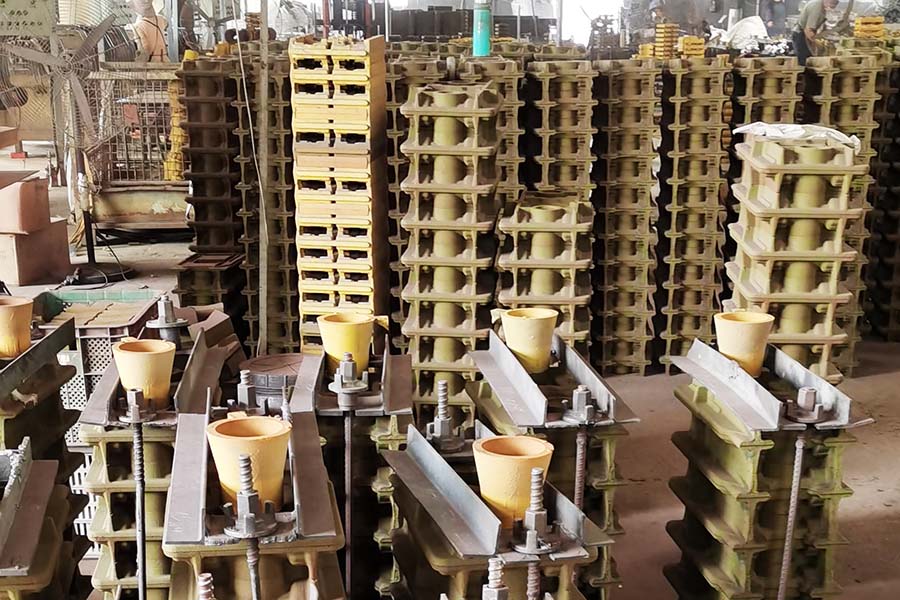
Shell Mould Workshop
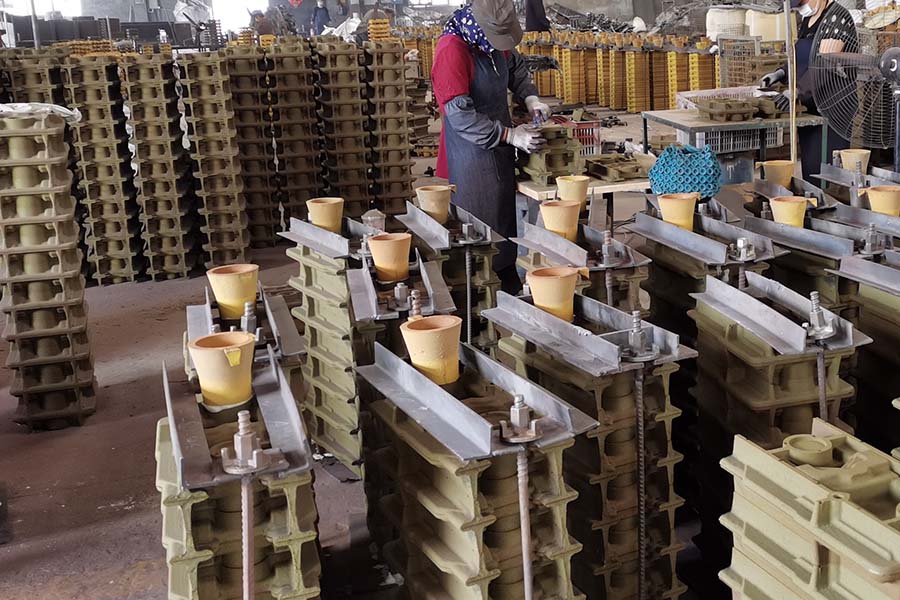
Shell Mould Production
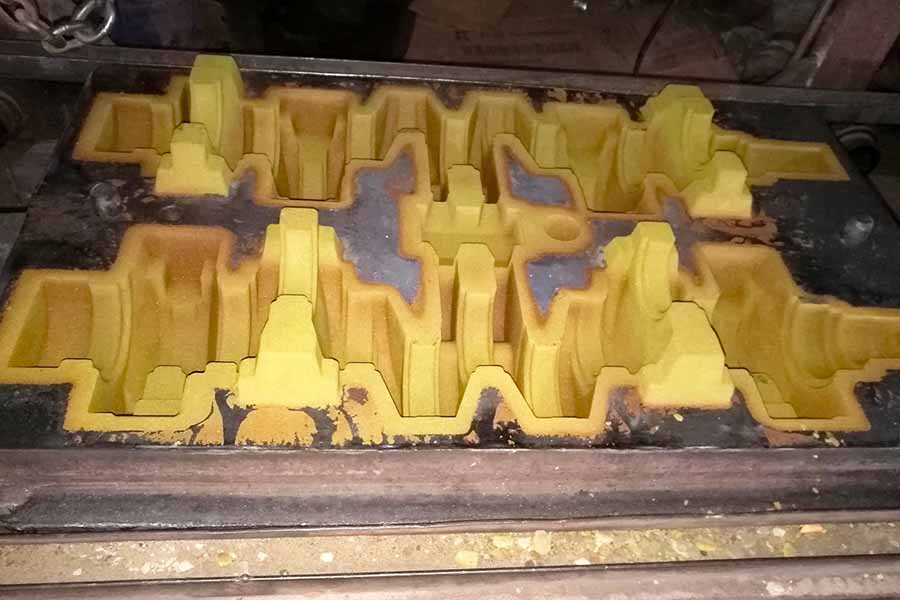
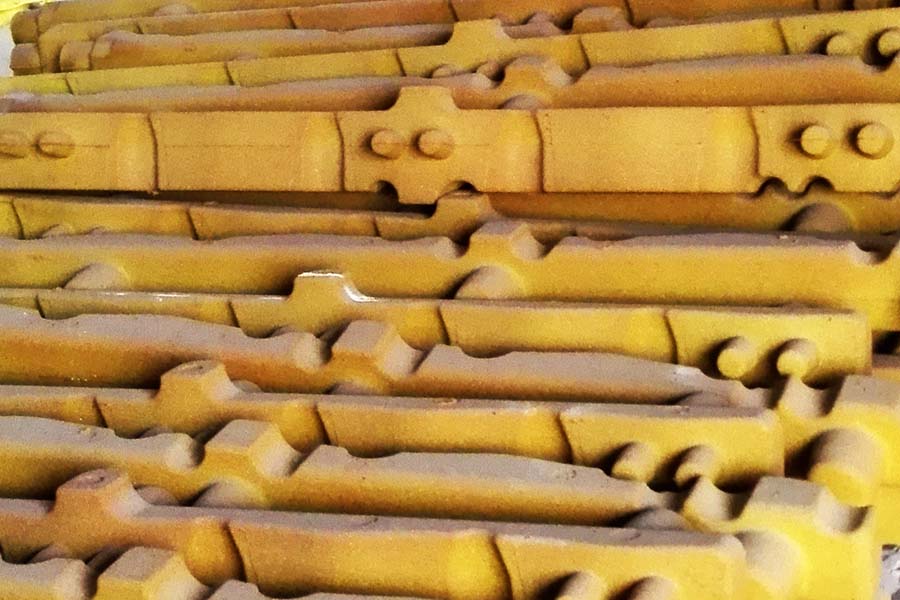
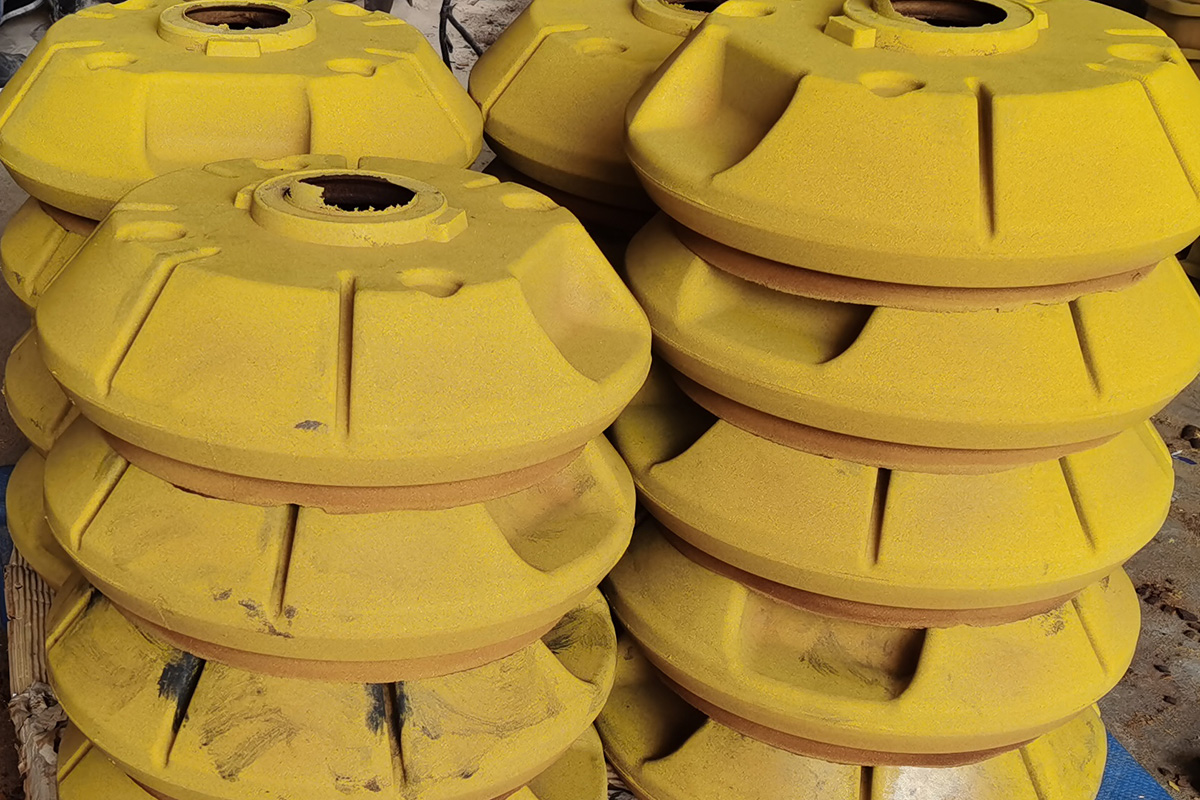
Shell Mould Casting
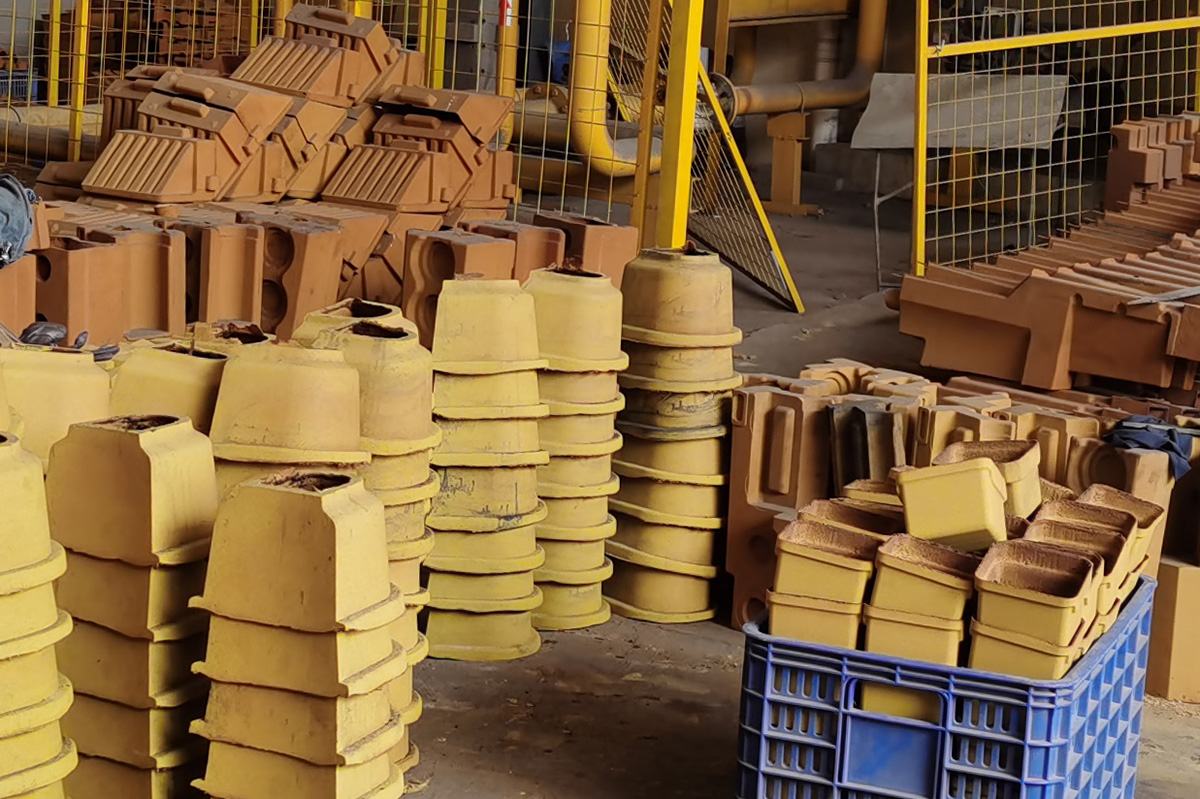
Shell Mould Making
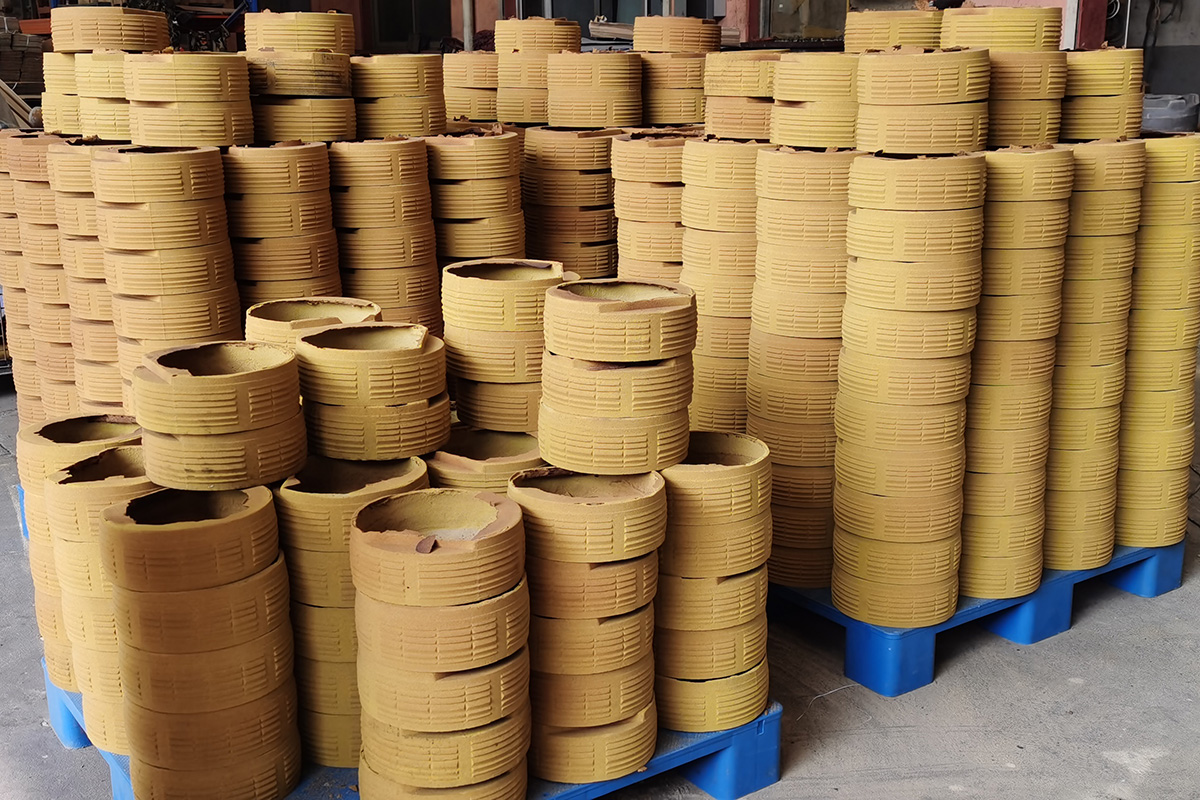
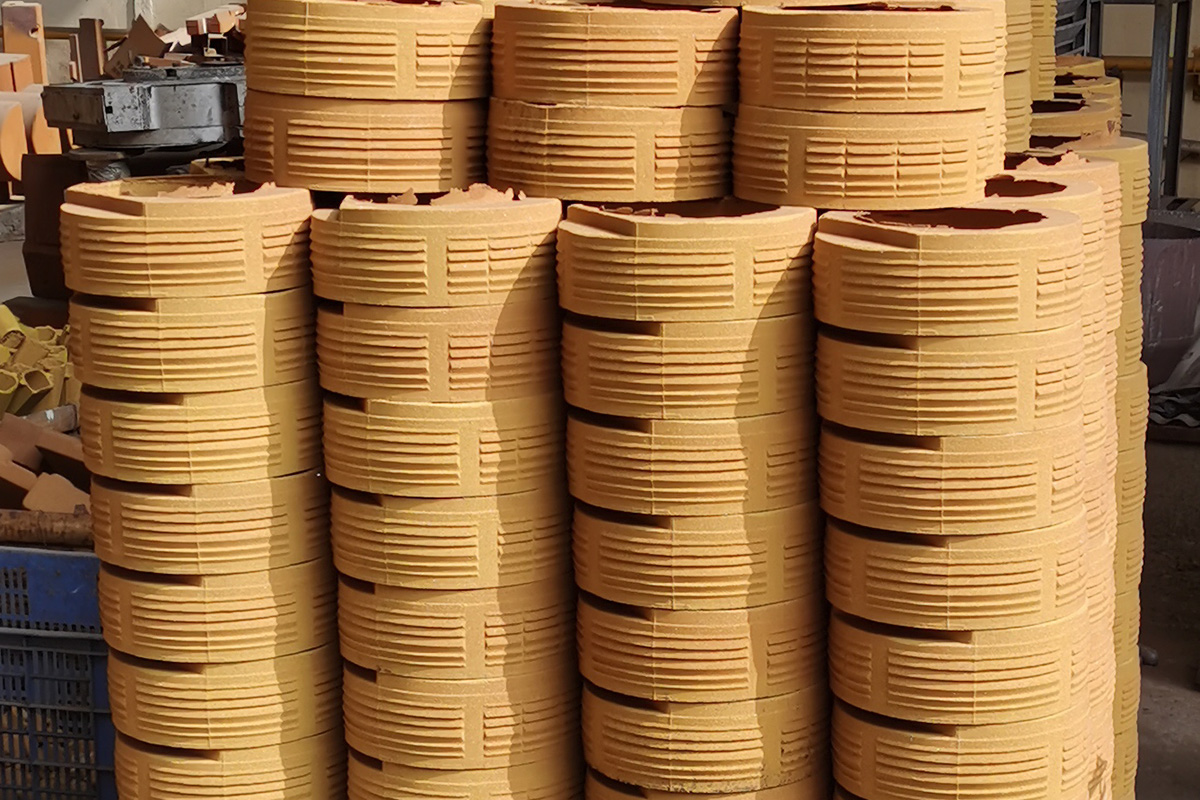
Applications of Shell Mould Casting Components
Shell mould castings could serve in many industries including valve & pumps, hydraulics, automotive, commercial truck, rail trains, logistics, agricultural machinery...etc. The castings mainly are used as gearbox housing, pressure pump housing, engine blocks, cylinder heads, transmission box, bracket, wheel hub, connecting rods, manifolds...etc.
Our services are varied and extensive. We offer material advisory service and development, as well as advice from our technical experts on design and casting with under the help of the software of 3D and CAD drawings and simulations software. From start to finish, we have you covered every step of the way.
- Sand Casting: Green Sand Casting with Handle and Automatic Molding Machine, Pre-Coated Shell Molding Casting, CNC Precision Machining and Metal Fabrications.
- Heat treatment: Quenching, Tempering, Normalizing, Annealing, Carburization, Nitration
- Surface treatment: Anodizing, Zinc-plating, Polising, GeoMet, Zintek, Electrophoresis....etc
- Testing Service: Chemical Composition, Mechanical Properties, Fluorescent or Magnetic Penetration Inspections (FPI, MPI), X-rays, Ultrasonic Testing, Dynamic and Static Balancing Testing
RMC offers a full range of sand casting solutions. If you would like to know more about our technology and sand casting process capabilities, contact us today.
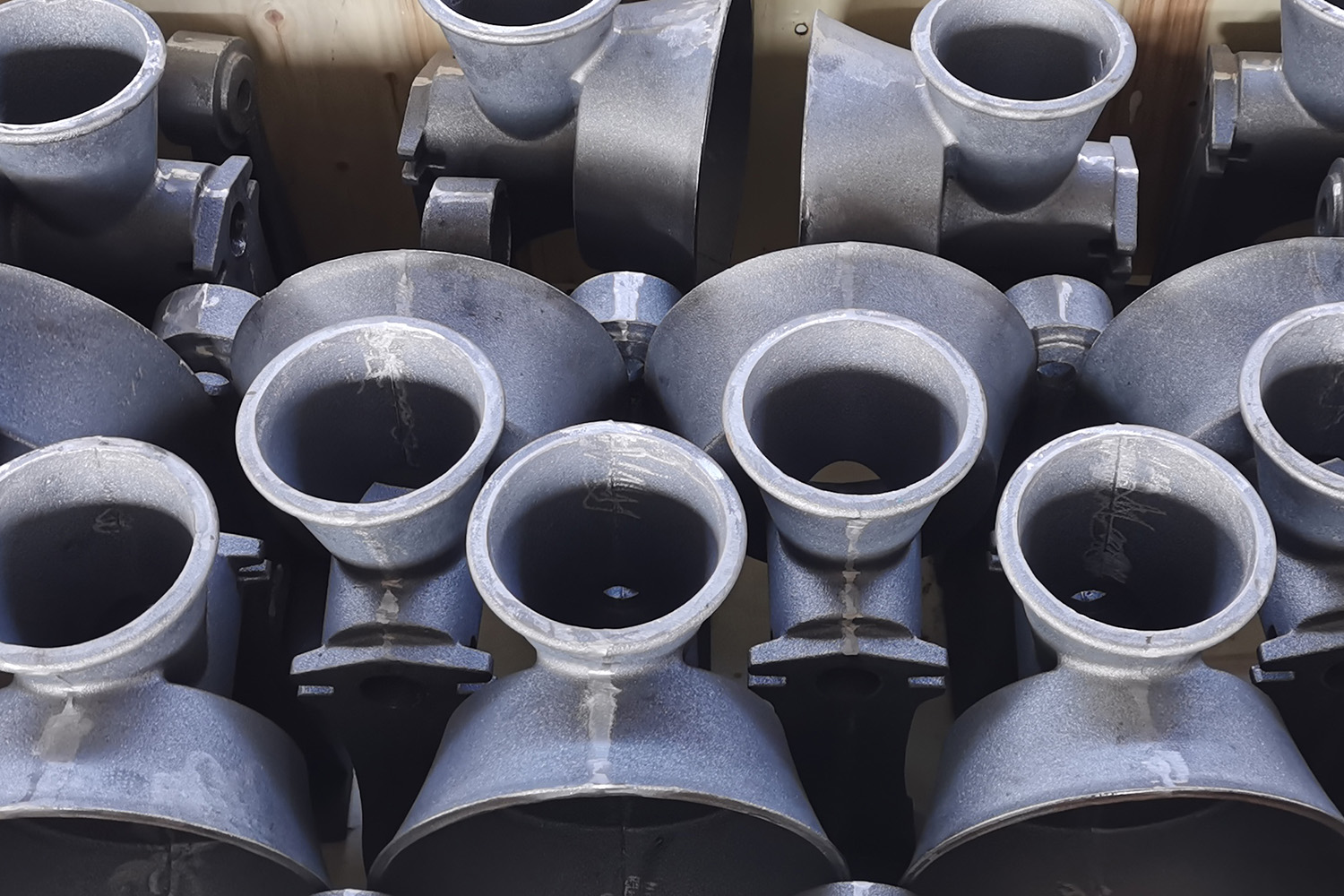
Grey Iron Shell Mould Castings
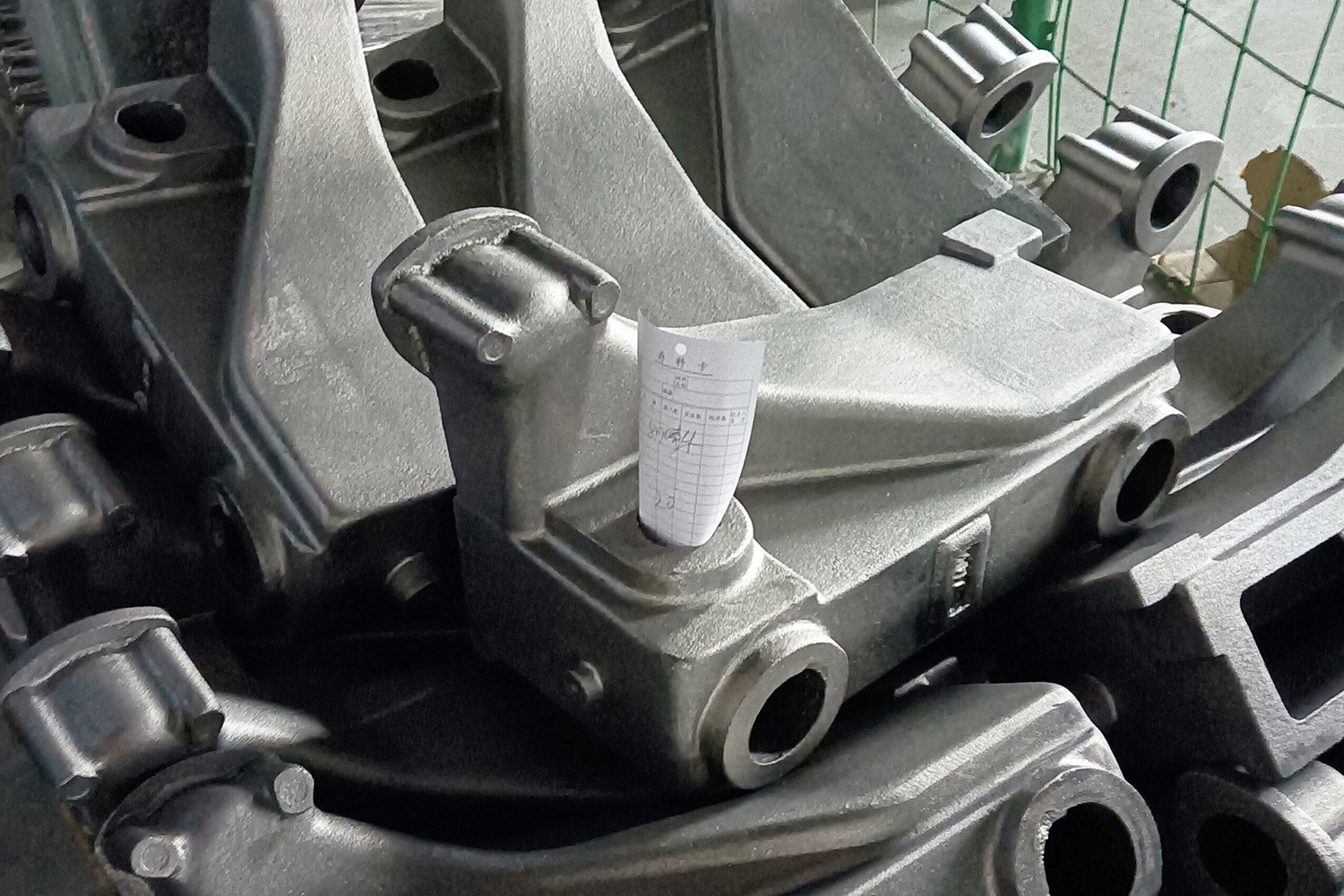
Shell Mould Casting Products
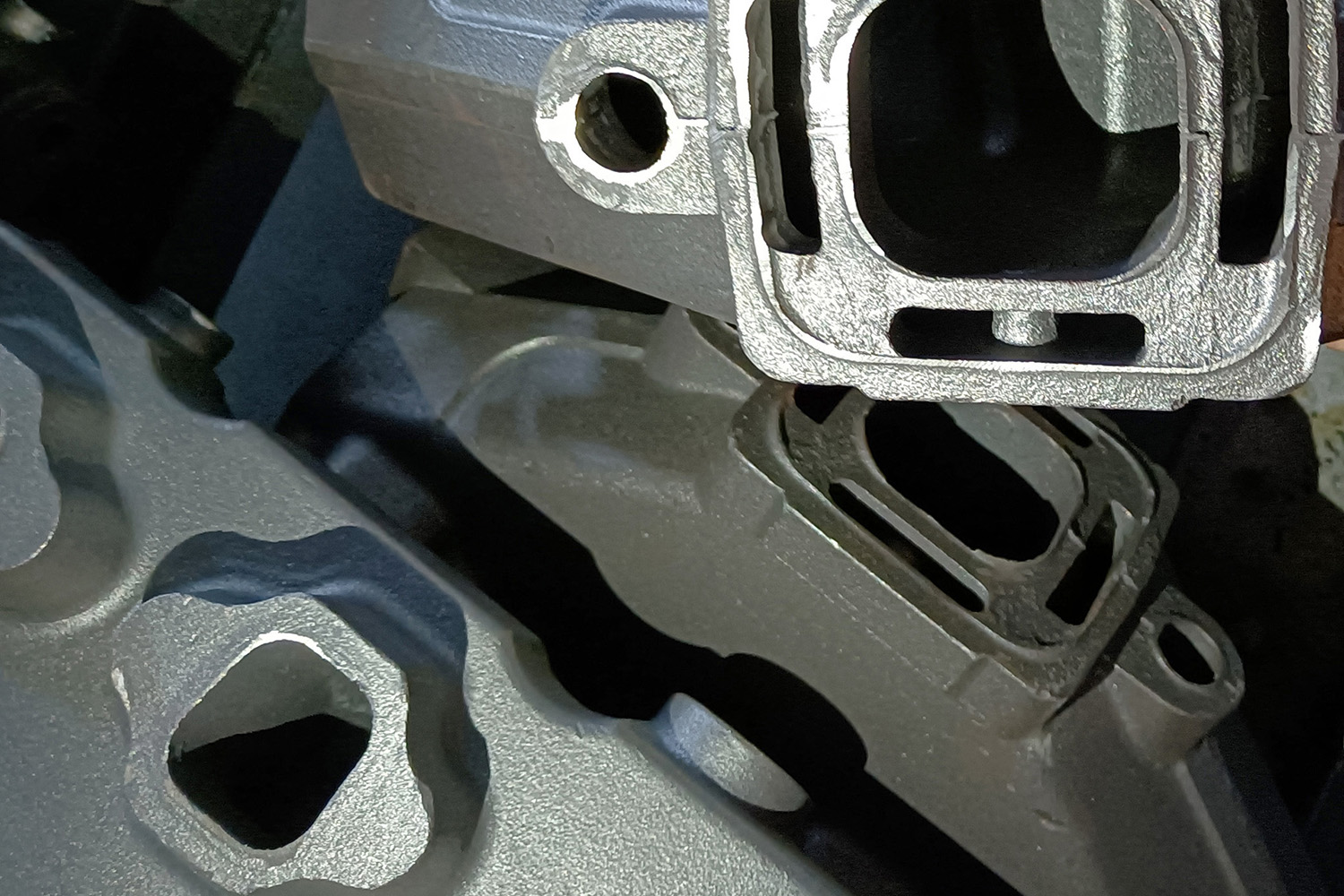
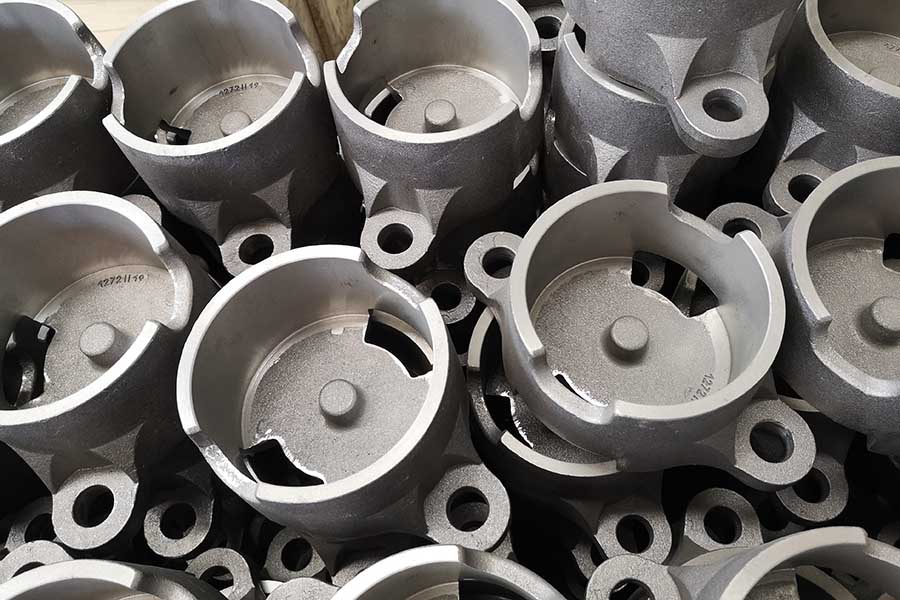
FAQs About Shell Mould Casting
Shell molding casting is also called pre-coated resin sand casting, hot shell molding casting or core casting. The main molding material is the pre-coated phenolic resin sand, which is more expensive than green sand and furan resin sand. Moreover, this sand can not be recycle used. Therefore, the shell molding castings have higher costs than sand casting. However,Compared to the green sand casting, the shell molding castings have many advantages such as higher dimensional tolerance, good surface quality and less casting defects. The shell molding casting process is specially suitable for producing castings of difficult shapes, pressure vessels, weight sensitive and castings requiring superior surface finishes.
✔ Making Metal Patterns. The pre-coated resin sand needs to be heated in the patterns, so metal patterns are the necessary tooling to make shell molding castings.
✔ Making Pre-coated Sand Mold. After installing the metal patterns on the molding machine, the pre-coated resin sand will be shot into the patterns, and after heating, the resin coating will be molten, then the sand molds become solid sand shell and cores.
✔ Melting the Cast Metal. Using induction furnaces, the materials would be melted into liquid, then the chemical compositions of the liquid iron should be analyzed to match the required numbers and percents.
✔ Pouring Metal. When the melted iron meet the requirements, then they will be poured into the shell molds. Based on different characters of the casting design, the shell molds will be buried into green sand or stacked up by layers.
✔ Shot Blasting, Grinding and Cleaning. After the cooling and solidification of the castings, the risers, gates or additional iron should be cut off and removed. Then the iron castings will be cleaned by sand peening equipment or shot blasting machines. After grinding the gating head and parting lines, the finished casting parts would come, waiting for the further processes if needed.
✔ Shell-mould castings are generally more dimensionally accurate than sand castings.
✔ A smoother surface of the finished castings can be obtained by shell casting.
✔ Lower draft angles than sand castings are required by shell moulds casting.
✔ Permeability of the shell is high and therefore less or no gas inclusions occur.
✔ Shell mold casting process needs very small amount of sand.
✔ Mechanisation is readily possible because of the simple processing involved in shell moulding.
• Cast Carbon Steel: Low Carbon Steel, Medium Carbon Steel and High Carbon Steel from AISI 1020 to AISI 1060.
• Cast Steel Alloys: 20CrMnTi, 20SiMn, 30SiMn, 30CrMo, 35CrMo, 35SiMn, 35CrMnSi, 40Mn, 40Cr, 42Cr, 42CrMo...etc on request.
• Cast Stainless Steel: AISI 304, AISI 304L, AISI 316, AISI 316L and other stainless steel grade.
• Cast Aluminium Alloys.
• Brass & Copper.
• Other Materials and Standards on request
As we mentioned in the casting tolerance for sand castings, the shell mold castings have much higher accuracy and tighter tolerance than sand casting. Here in the following are the general tolerances grade we could reach by our shell mould casting and no-bake furan resin sand casting:
✔ DCT Grade by Shell Mold Casting or Furan Resin Sand Casting: CTG8 ~ CTG12
✔ GCT Grade by Shell Mold Casting or Furan Resin Sand Casting: CTG4 ~ CTG7
 русский
русский

